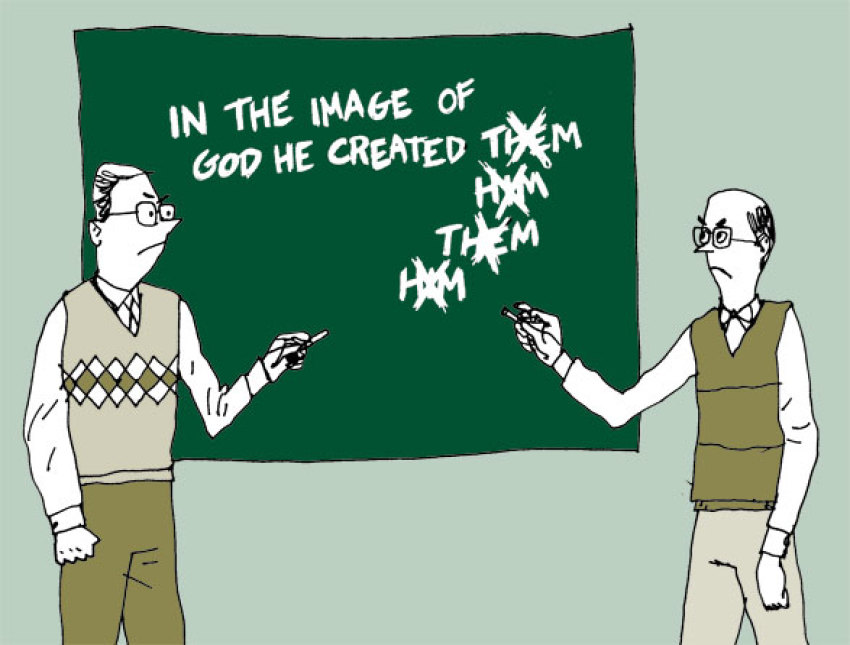Does God get a say in preferred pronoun?

In a recent article for the leftist Religion News Service, Mark Silk, professor of religion in public life at Trinity College and contributing editor of RNS, advocates the use of "they" for God. His proposal comes at the junction of the efforts to change the general usage of the English language and the push to neuter specific language about God–both agendas driven by the sexual revolution.
The article shows the usual progressive rejection of God’s authority in favor of our own ideologies. Masculine language for God, even the title Father, is “deeply problematic” for liberals (whether ostensibly Christian or, like Silk, Jewish). On the contrary, for orthodox Christians, it is a title of adoration and of wonder when we reflect that in Jesus Christ, God the Father reaches down and offers to become our Father. Silk’s “modest proposal” is part of a movement destructive to spiritual life and defiant towards God Almighty. As Albert Mohler Jr. observes in his reflections on Silk’s article, “It is a denial of God to refuse to use his name, the name that he’s revealed to us.”
But what I find particularly striking is how Silk’s proposal fails even on its own terms. Within the narcissistic and absurd world of "preferred pronouns," the whole point is that the pronouns are the ones preferred by the person to whom they refer. It’s all about self-identification, self-designation, the doctrine that my identity is either determined by me or known only to me, and in any case unknown to you until I reveal it; and, when I reveal it to you, there can be no appeal to objective factors between us, and certainly not to your opinions, in defiance of my revealed identity.
So it cuts directly against the whole idea of "preferred pronouns" to say “our preferred pronoun for God” should be this or that. At the same time, it has a certain consistency with the underlying agenda, in elevating man above God: just as they refuse to let God tell them who they are, likewise they refuse to let God tell them who He is. Everyone gets to designate their preferred pronouns except God. Humans are entrusted to define their own identity, and their revelation is to be received without question, but God’s revelation of Himself (and of ourselves) is to be rejected in favor of our preferences.
This underlines the whole inversion of reality that sin attempts to bring about. We try to take the place of God, and by our language to reorder the world according to our designs. Instead of acknowledging with wonder that we are made in the image of God—male and female (Gen. 1:27)—we not only try to define ourselves but to define God in the image of our own imaginings.
But there is something very important to notice here, a word of invincible hope against the darkness. Sin can only attempt to invert reality. Our words are descriptive and communicative, not ultimately creative. Our lies have the capacity to change perceptions, to obscure reality. But our lies cannot truly and fundamentally reorder creation.
By contrast, God’s Word is powerful. God’s Word is creative. God speaks, and things come into being. The final failure of the liberal theological project has always been a foregone conclusion and is assured by the simple fact that we are not God. The Lord alone is God. God has spoken, and the glory of true theology is that by humble attention to God’s Word we can know Him as He truly is, find our identity in Him, and delight in His majesty as His redeemed people.
The way forward is through humble submission to the Lordship of Christ. We must let God tell us not only who He is, but who we are. Our speech should reflect the truth about God and His world, and resist the deceitful spirit of the age. But even more, our knowledge of God can be personal and transformative. Turning to Christ in faith, we can know not only who we are, but who we are to be. Found in Christ, we can know God the Father as our Father.
Joshua Steely is senior pastor of Chatham Baptist Church in Chatham, Illinois.



























